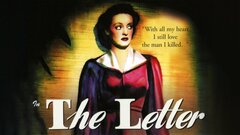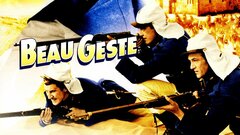A tall, often mustachioed character actor with clipped phrasing and a dignified, intelligent manner, James Stephenson was a typically crisp British type and had acted onstage in his native land for a number of years before being signed by Warner Bros. in Hollywood. He had played in films in England produced by Warner Bros.' subsidiary First National, including such modest fare as "The Man Who Made Diamonds," "The Perfect Crime," and "Transatlantic Trouble" (all 1937) before performing in his first US release, "White Banners" (1938).
For several years he played supporting roles in programmers and star vehicles like the Dick Powell musical, "The Cowboy from Brooklyn" (1938) and "B" pictures including a Dick Foran Western, "Heart of the North" (1938), a minor but enjoyable astrology-themed mystery, "When Were You Born?" (1938) and a failed attempt to launch a film series around a well-known cartoon heroine, "The Adventures of Jane Arden" (1939). Stephenson played smooth professional types like doctors and businessmen, alternately sympathetic and criminal, acquitting himself competently in routine roles, though not well-cast in Westerns given his accent.
Stephenson came closest to playing a lead in a "B" film toplining fading glamour queen Kay Francis and rising gangster star Humphrey Bogart, "King of the Underworld" (1939). Stephenson was nominally paired with Francis at the close, but the film did none of them any good. At least Stephenson was starting to also appear in a classier breed of Warners fare, with parts in "The Old Maid," "Confessions of a Nazi Spy," on loanout to Paramount for "Beau Geste" (all 1939) and "The Sea Hawk" (1940).
His real break, however, came when Jack Warner suggested him to director William Wyler for a Bette Davis vehicle, a steamy remake of the Malaysian-set melodrama, "The Letter" (1940). The story was that after Warner found out how important Stephenson's role was to be, he opposed the casting, but Wyler so admired the actor's test that he fought for him. It turned out to be his most shining victory in film. As lawyer Howard Joyce, discerning that his client Leslie (Davis) has committed a crime of passion rather than one of self-defense, Stephenson artfully delineated the conflicts of a man risking his career and bending his morals to protect Leslie's deceived husband (Herbert Marshall).
He is especially memorable as Howard and Leslie go to purchase an incriminating letter, and when he tells her that he doesn't want to know anything "except what is necessary to save your neck." "Virtually stealing thesp honors in the pic" was how VARIETY praised Stephenson. His superb performance justly won him a Best Supporting Actor Oscar nomination. His competition, however, included the better established likes of Jack Oakie and the winner, master scene-stealer Walter Brennan, a former extra with two wins under his belt who won a lot of nods from voting extras.
In his fifties, Stephenson was pretty obviously a character type and continued playing supporting roles in "Flight from Destiny" (1941) and what would be his last film, "International Squadron" (1941), as Ronald Reagan's flight commander. Stephenson did enjoy one leading role in the light of his triumph, in Irving Rapper's modest and sentimental but fairly well-done debut film, "Shining Victory" (1941), Stephenson brought sincerity and dignity to his role as a dedicated researcher who at first doesn't notice the love of his assistant (Geraldine Fitzgerald). One cannot say what other work Stephenson might have done since he died abruptly at age 52, but enough of his work was polished enough to suggest that he was more than a one-performance actor.















































